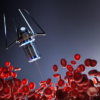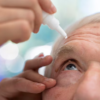Understanding HPV: An Ayurvedic Perspective
Understanding HPV: An Ayurvedic Perspective is a common sexually transmitted infection affecting millions worldwide. While conventional medicine offers various treatment options, Ayurvedic medicine provides a holistic approach to managing HPV. In this blog, we’ll explore HPV, its implications, and how Ayurveda can contribute to its management and prevention.
What is HPV?

HPV is a group of more than 200 related viruses, some of which can lead to health issues, including genital warts and cancers such as cervical cancer, anal cancer, and oropharyngeal cancers. HPV is categorized into low-risk types (which cause warts) and high-risk types (which are linked to cancer). The virus is primarily transmitted through intimate skin-to-skin contact.
Symptoms of HPV
Most HPV infections are asymptomatic, meaning they don’t show noticeable signs. However, when symptoms do occur, they may include:
- Genital warts: Small, flesh-colored or gray swellings in the genital area.
- Cervical dysplasia: Changes in cervical cells that can lead to cancer.
- Other forms of warts on various body parts.
Traditional Medical Approaches
Conventional treatments for HPV include:
- Monitoring: Regular Pap smears for early detection of cervical changes.
- Vaccination: HPV vaccines like Gardasil and Cervarix help prevent infection from the most common high-risk strains.
- Surgical Procedures: For removing warts or precancerous cells.
While these methods can be effective, they often focus on symptom management rather than underlying causes.
Ayurveda: An Overview
Ayurveda, the ancient Indian system of medicine, emphasizes balance among the body, mind, and spirit. It is rooted in the belief that health is achieved by maintaining harmony within oneself and with the environment. Ayurveda utilizes various approaches, including herbal remedies, dietary adjustments, yoga, and lifestyle changes.
Core Principles of Ayurveda
- Doshas: Ayurveda identifies three primary energies (Vata, Pitta, and Kapha) that govern physical and mental processes. Health is viewed as a state of balance among these doshas.
- Prakriti and Vikriti: Prakriti refers to an individual’s constitution, while Vikriti refers to their current state of health. Understanding both helps tailor treatment.
- Sattva, Rajas, and Tamas: These three qualities influence mental states and well-being. Sattva represents purity and harmony, Rajas denotes activity and chaos, and Tamas symbolizes inertia and ignorance.
The Ayurvedic Perspective on HPV
From an Ayurvedic standpoint, HPV can be understood as a manifestation of imbalances within the body’s doshas and a reflection of an individual’s overall lifestyle. The virus can be viewed as a result of poor immunity, toxic buildup (ama), and emotional disturbances.
Imbalance and Disease
- Vata Imbalance: This can lead to anxiety and stress, affecting the immune system’s ability to fight infections.
- Pitta Imbalance: Characterized by inflammation and heat, which may exacerbate symptoms related to HPV.
- Kapha Imbalance: Often associated with stagnation and lethargy, leading to a weakened immune response.
Ayurvedic Approaches to HPV Management
1. Herbal Remedies
Ayurveda employs a variety of herbs known for their antiviral and immune-boosting properties. Some of these include:
- Tulsi (Holy Basil): Known for its adaptogenic properties, Tulsi can help combat stress and boost immunity.
- Neem: With its potent antiviral and antibacterial properties, Neem is effective in detoxifying the body.
- Ashwagandha: This adaptogen helps in managing stress and enhancing overall vitality.
- Turmeric: Contains curcumin, which has anti-inflammatory and antioxidant effects, supporting overall health.
2. Dietary Adjustments
A balanced diet plays a crucial role in managing HPV. Key recommendations include:
- Anti-inflammatory Foods: Incorporating foods like ginger, garlic, turmeric, and green leafy vegetables can help reduce inflammation.
- Avoiding Processed Foods: Limiting sugar, fried foods, and refined grains can help maintain optimal health.
- Hydration: Drinking adequate water aids in detoxification and helps the body eliminate toxins.
3. Lifestyle Changes
Implementing positive lifestyle changes is essential for improving immunity and overall health:
- Stress Management: Practices like meditation, yoga, and pranayama (breath control) can help reduce stress levels and strengthen the immune system.
- Regular Exercise: Engaging in physical activity helps maintain a healthy weight and boosts overall well-being.
- Adequate Sleep: Ensuring 7-8 hours of quality sleep can significantly enhance immune function.
4. Panchakarma
Panchakarma is a detoxification and rejuvenation therapy in Ayurveda. It involves five primary procedures to cleanse the body of toxins and restore balance. This can be particularly beneficial for those with HPV, as it helps in reducing ama (toxins) and enhancing overall health.
- Vamana: Therapeutic vomiting to expel excess kapha.
- Virechana: Purgation therapy to eliminate pitta and toxins from the liver.
- Basti: Enema therapy for detoxification and rejuvenation.
- Nasya: Nasal administration of herbs to clear sinuses and promote mental clarity.
- Raktamokshana: Bloodletting to purify the blood and improve circulation.
Emotional and Psychological Well-being
Ayurveda recognizes the connection between emotional health and physical well-being. HPV can often lead to anxiety and stress due to societal stigma and health implications. Therefore, addressing emotional health is crucial:
- Counseling and Support: Seeking professional support or joining support groups can help individuals cope with emotional challenges.
- Mindfulness Practices: Incorporating mindfulness and meditation can help cultivate a sense of peace and resilience.
Prevention Strategies
While Ayurveda can help manage and treat HPV, prevention is equally important. Some effective strategies include:
- Vaccination: Getting vaccinated against HPV can significantly reduce the risk of infection.
- Safe Practices: Using condoms and engaging in safe sexual practices can minimize the risk of transmission.
- Regular Screenings: Routine Pap smears and HPV testing can help detect early changes in cervical cells.
Conclusion
Managing HPV through Ayurveda offers a holistic approach that addresses not just the virus but also the underlying imbalances in the body, mind, and spirit. By incorporating herbal remedies, dietary adjustments, lifestyle changes, and emotional support, individuals can empower themselves in their journey toward healing.
While Ayurveda presents a promising complementary approach, it’s essential to work alongside healthcare professionals for comprehensive care. Embracing a holistic lifestyle not only helps in managing HPV but also fosters overall well-being, promoting a healthier future.








Leave a reply